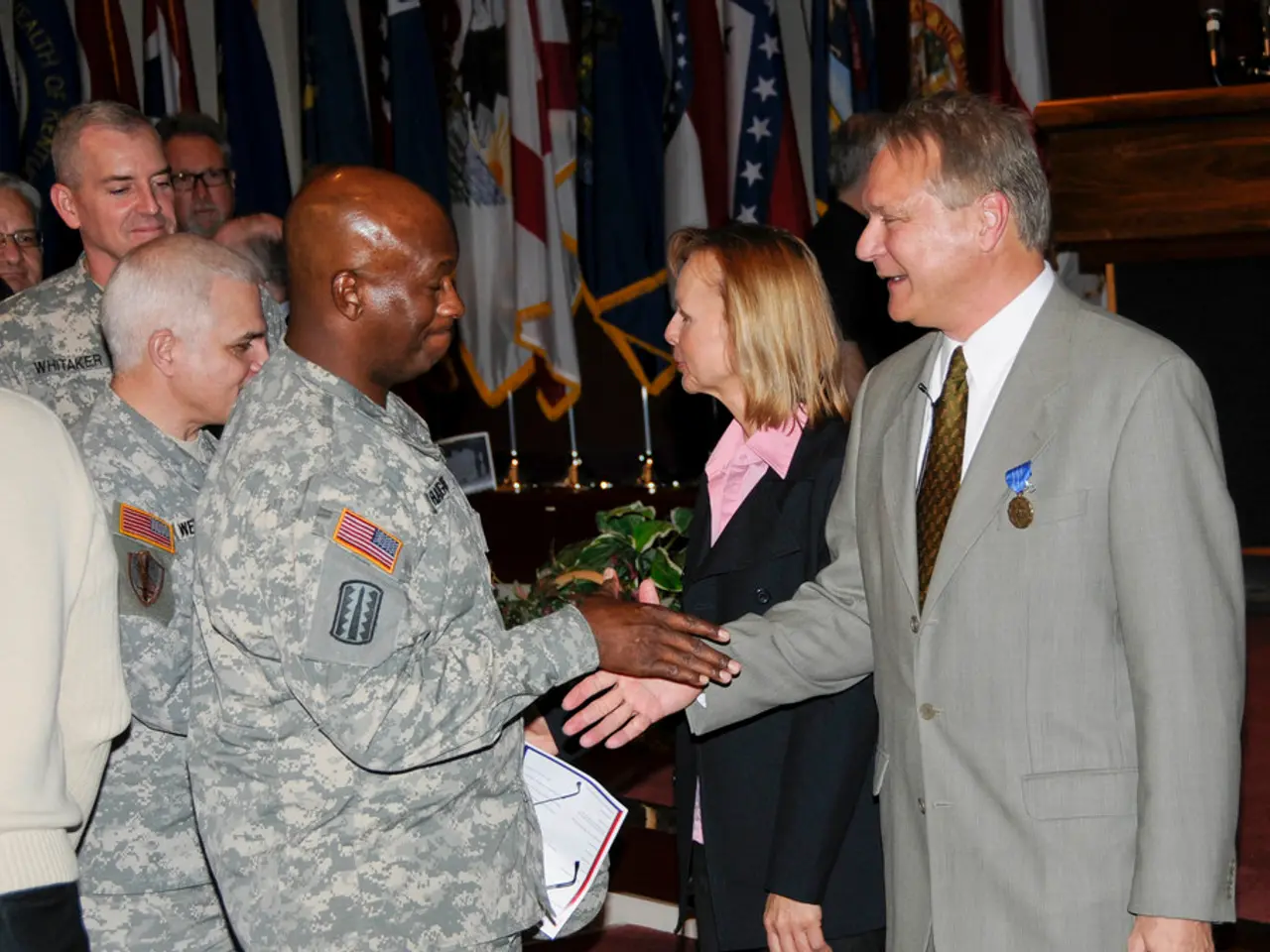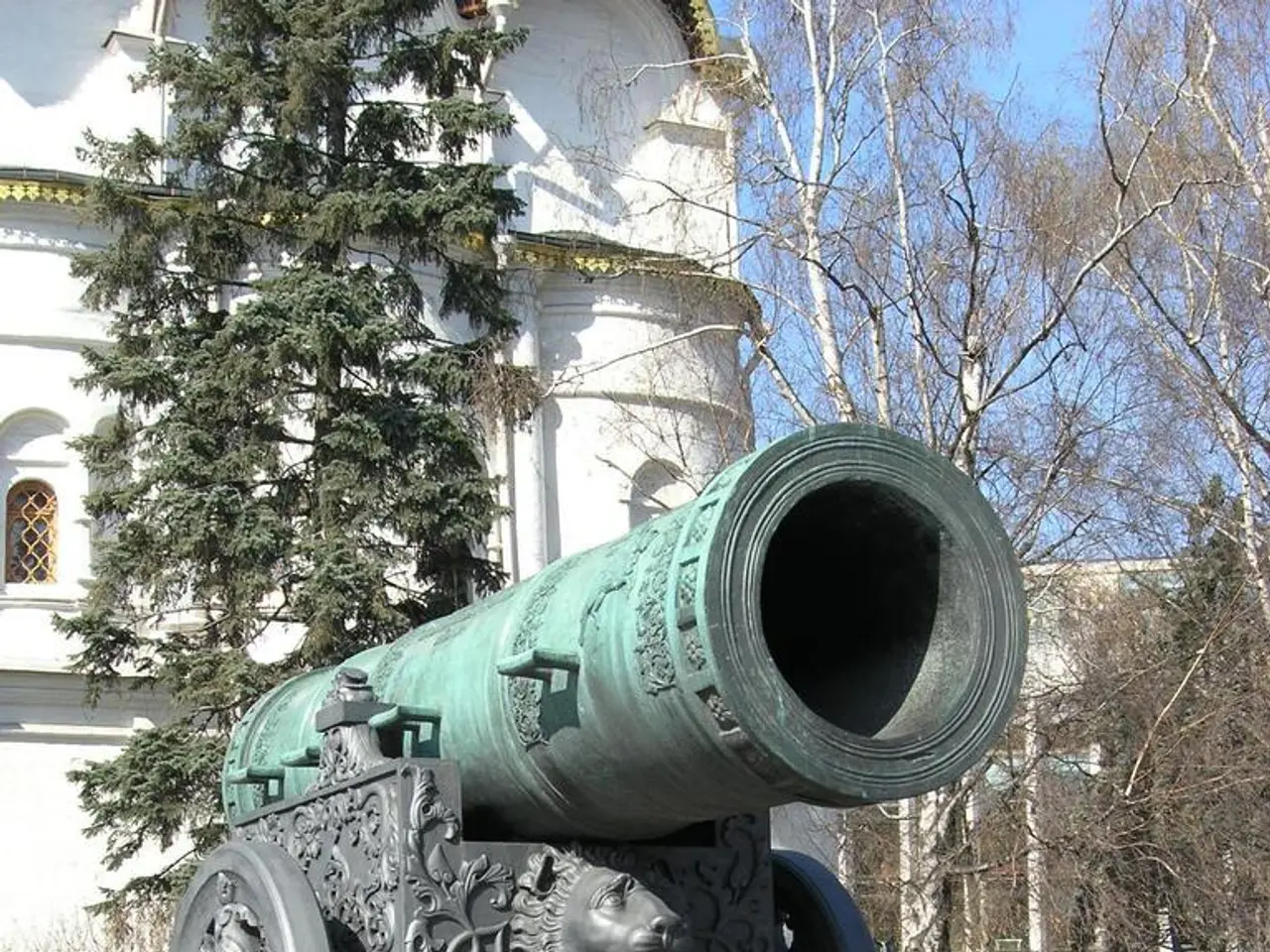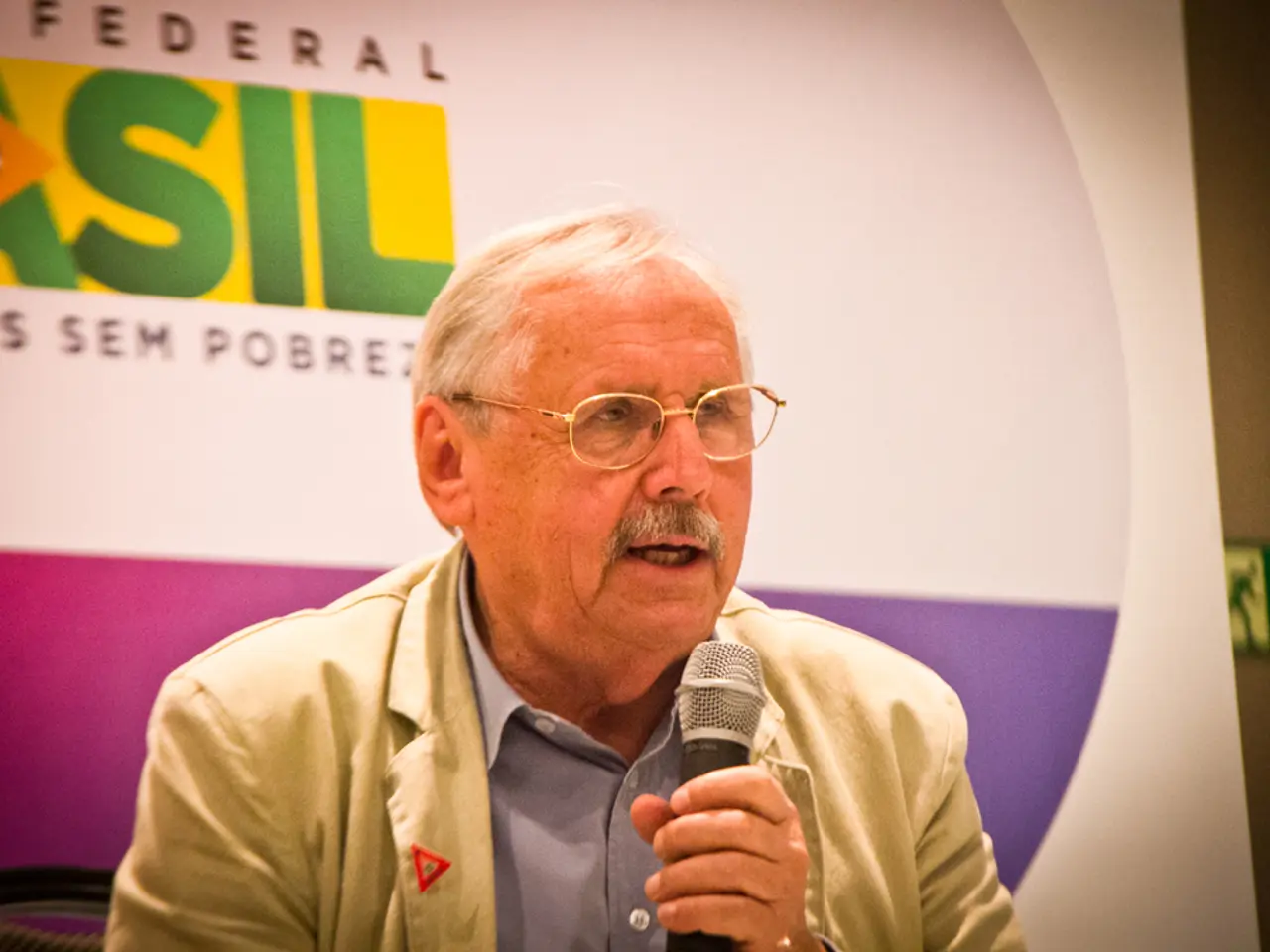Europe's Democratic Revival Under Macron and Merz's Lead, Sparks Britain's Reconnection
In the ever-evolving landscape of international politics, the year 2025 finds Europe grappling with significant internal challenges and external geopolitical pressures, yet striving for a more coherent and influential role. This journey towards strategic autonomy and multilateral commitment is a response to the unpredictable international order disrupted by the policies of former US President Donald Trump’s administration and Russian President Vladimir Putin.
The EU is currently navigating its role in a world order disrupted by the unilateral policies of the Trump II administration, which cut funding to multilateral organizations like the UN, creating gaps that the EU and its member states are struggling to fill collectively. This external challenge has accelerated EU efforts for greater autonomy in security and defense, as seen in the release of the “European Defence - Readiness 2030” White Paper, which signals an ambition for the EU to reduce its strategic dependence on the US.
Internal division, particularly highlighted by leaders like Hungary’s Viktor Orbán, continues to test European unity. The recent EU-US tariff deal, concluded in mid-2025, revealed sharp disagreements among EU members and highlighted divergent national interests, illustrating the fragility of unity in economic policy and trade negotiations. The rise of right-wing parties, exemplified by Orbán’s Hungary, whose nationalist positions complicate collective EU decision-making and strain the shared commitment to multilateralism and liberal democratic values, further exacerbates these challenges.
However, key EU institutions and leaders reaffirm their commitment to multilateralism, the United Nations, and sustainable development goals, seeking to maintain the EU’s position as a “predictable, reliable, and credible partner” in international affairs. This is paired with efforts to deepen political and economic ties with neighboring regions, such as the Mediterranean, through initiatives like the Pact for the Mediterranean, signalling a strategic approach to building shared security and prosperity beyond EU borders.
A notable development in this context is the first state visit by a European country to Britain since Brexit, with President Emmanuel Macron of France being given a warm welcome. The visit, deliberately scheduled before President Trump’s state visit in September, marks a significant step towards rebuilding Britain's relationship with Europe. The future for Britain, it seems, is in Europe, or as close as possible, building unity with France and Germany around defense.
The treaty signed by Chancellor Merz and Macron promotes cooperation on defense, economic growth, and tackling illegal migration. This cooperation is a testament to the growing recognition that Europe must defend itself and unite around liberal democratic values, as it is the only one left to represent in the world. The symbolism of these two events - the state visit and the treaty - reflects the changes in Europe, with leaders like Trump and Putin causing Europe to unite.
The majority of the British people now want to return, and many regret Brexit as a bad error. A EuroTrack poll found the EU people enthusiastic about Britain rejoining. The mutual assistance clause in the treaty considers a threat to one nation as a threat to the other, similar to NATO’s founding principle. This unity is crucial for Europe’s future strength and cohesion, as right-wing parties of various degrees of extremism, some bordering on fascism, are threatening the values at the heart of the EU's foundation.
The current state of European unity in 2025 is marked by significant internal challenges and external geopolitical pressures, but also by a growing effort towards strategic autonomy and multilateral commitment. The future prospects of European unity depend on the EU’s capacity to manage internal disunity, especially the challenges posed by the rise of nationalist right-wing parties, and to strengthen its strategic independence from both the US and Russia. The acceleration towards greater defense autonomy and the sustained commitment to multilateralism position the EU as striving for a more coherent and influential role globally, although fissures within still present significant hurdles.
President Macron, in a gesture of goodwill, brought the Bayeux tapestry as a symbol of shared history and culture, travelling to Britain for the first time in 900 years. This visit, and the treaty signed with Germany, are steps towards healing the wounds of Brexit and rebuilding a stronger, more united Europe.
[1] European Defence Agency. (2025). European Defence - Readiness 2030. Retrieved from https://www.eda.europa.eu/defence-readiness-2030 [3] European Parliament. (2025). EU-US tariff deal: A compromise that underscores Europe’s fragmented condition. Retrieved from https://www.europarl.europa.eu/news/en/headlines/economy-and-jobs/114429/eu-us-tariff-deal-a-compromise-that-underscores-europe-s-fragmented-condition [5] European Commission. (2025). Pact for the Mediterranean. Retrieved from https://ec.europa.eu/neighbourhood-enlargement/neighbourhood/pact-mediterranean_en
- The European Union's navigation of its role in a disrupted world order, marked by the unilateral policies of the Trump II administration and external geopolitical pressures, has led to intensified focus on policy-and-legislation and politics, notably the release of the "European Defence - Readiness 2030" White Paper, aiming for greater security and defense autonomy, and a more coherent role in war-and-conflicts.
- General-news sources report sharp disagreements among EU members, highlighted by the EU-US tariff deal, and the rise of right-wing parties, complicating collective decision-making and straining the shared commitment to multilateralism and liberal democratic values. This internal conflict is a significant challenge for European unity and its future strategic independence from both the US and Russia.






